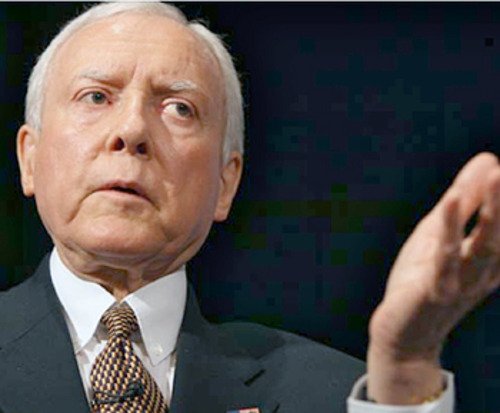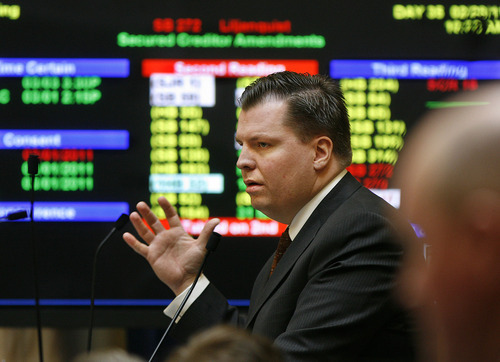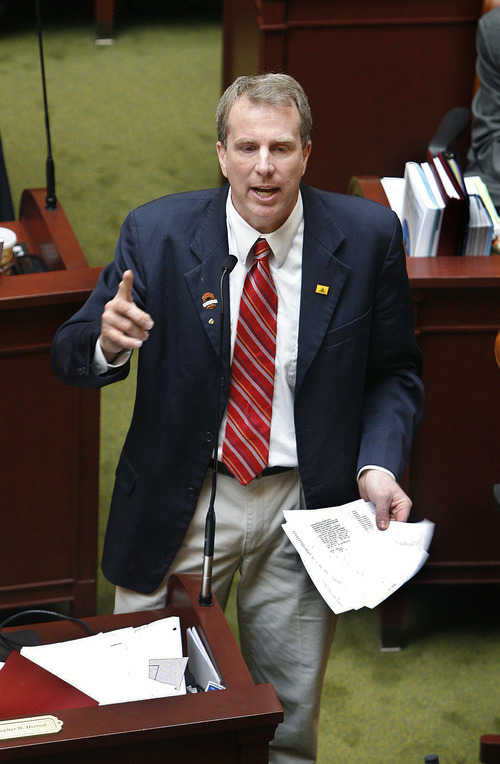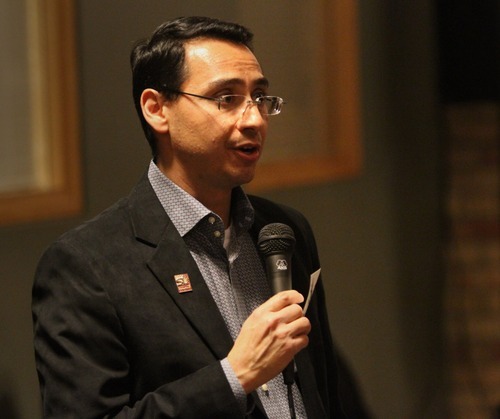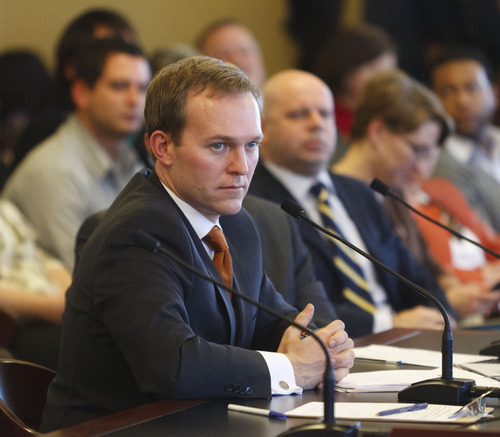This is an archived article that was published on sltrib.com in 2012, and information in the article may be outdated. It is provided only for personal research purposes and may not be reprinted.
A tiny percentage of Utah voters usually attend political party caucuses. But voters are being prodded to go this year through millions of dollars of ads, mailers and "robocalls" usually seen only in primary or general elections — plus unprecedented, repeated over-the-pulpit pleas from the LDS Church.
How important are the meetings this week?
"The U.S. Senate race will be won or lost in the caucuses," said Russ Walker, national political director of FreedomWorks for America, a group trying to oust Sen. Orrin Hatch, R-Utah.
Many smaller legislative and county races also will be decided in local areas that are either overwhelmingly Democratic or Republican.
"Caucuses are the real Election Day in much of Utah — such as for Democrats in Salt Lake City, or Republicans in northern Utah County," said Thomas Wright, chairman of the Utah Republican Party.
The meetings for Democrats are Tuesday at 7 p.m., and for Republicans and the Constitution Party, Thursday at 7 p.m.
Caucuses are more important after what happened two years ago. Tea party activists packed GOP caucuses to elect state convention delegates who dumped 18-year incumbent Sen. Bob Bennett. It led to claims that a relative few on the right wing took over writing Utah's ballot. Now, no candidates overlook the danger or opportunity that caucuses present.
Thursday, when the GOP holds its caucuses, "is the day we have focused on since starting our campaign more than a year ago," said Dave Hansen, campaign manager for Hatch, who hopes to avoid a repeat of what happened to Bennett.
"We've spent $3 million-plus over the past year," he said, including targeting people to run as Hatch delegates in every precinct, plus a barrage of ads. Groups supporting Hatch have spent extra on his behalf, including a robocall in recent days from presidential candidate Mitt Romney.
"We've spent less than one-hundredth what Hatch has," said state Rep. Chris Herrod, R-Orem, one of several opponents of Hatch. "But the caucus system gives someone like myself a chance to take on someone like Hatch" by low-cost, personal campaigning with the 4,000 GOP state delegates who will be chosen by caucuses.
"The caucus system levels the playing field to a large extent, and negates the influence of outside money," said Holly Richardson, campaign chairwoman for Republican U.S. Senate candidate Dan Liljenquist, a former state senator. "We can't match him dollar for dollar, but we can still win."
Also helping to level the playing field is FreedomWorks. It has spent more than $571,000 urging Utahns to dump Hatch, according to its campaign disclosures. That spending includes holding 36 training meetings statewide to help its supporters learn how to become delegates.
Many groups are seeking to expand turnout to involve more Utahns in essentially writing the ballot. Delegates chosen in caucuses will choose the top two candidates in all races who appears on primary election ballots — and if a candidate manages to win 60 percent of delegate votes, that candidate goes directly to the general election.
Utah Democratic Party Chairman Jim Dabakis said, "Because we as Utahns haven't been as attentive to that responsibility [of attending caucuses], the whole process has been corrupted and taken over by extremists. And the end result of that is what we are seeing in the Utah Legislature with bills like this abstinence bill [on sex eduction] … that are clearly out of the mainstream."
The LDS Church First Presidency took an unprecedented step to have a letter read over the pulpit for the past three Sundays encouraging caucus attendance and canceling all church meetings on caucus days.
It said the caucuses "are best served by a broad representation of Utah citizens," and that church leaders are "concerned with the decreasing attendance at these caucus meetings."
GOP Chairman Wright said his party is spending $300,000 to prod turnout, hoping that 100,000 people will attend — up from 58,000 two years ago. He said that includes putting up signs in all precincts about where meetings will be, plus other ads.
Wright expects high numbers in part because of in-party contests for U.S. Senate, governor and Congress. Dabakis said he expects far smaller numbers at Democratic meetings, in part because it doesn't have as many in-party contests, although it has some, such as a race between state Sens. Ross Romero and Ben McAdams for Salt Lake County mayor.
Even Represent Me Utah! — a group of independent voters — is taking the unusual step of asking unaffiliated voters to pick a party and attend caucuses.
Kelli Lundgren, chairwoman of the group, said it feels that Utah leaders "are being stifled or swayed by fear mongering from the far right." So the group wants unaffiliated voters at caucuses to help select delegates and candidates who represent their views.
Democrats allow members of any party to attend and vote. While Republicans invite anyone to attend, only registered Republicans may participate and vote or run for offices — but attendees can register as Republicans at the door.
"This is the basic step for our form of government in Utah," said Dabakis. "All Utahns need to get involved so that they ensure we elect people who are representative of their views." —
Caucus meetings this week
Democrats • Tuesday at 7 p.m.
Republicans and Constitution Party • Thursday at 7 p.m.
Locations are listed at vote.utah.gov by clicking on "Find my caucus location." Voters must know their precinct number from that website to find the proper group at the meetings.
Only registered Republicans may participate in GOP caucuses, but people may register as Republicans at the meetings. Democrats allow members of any party to participate, but do not allow people to participate in both Republican and Democratic caucuses.


